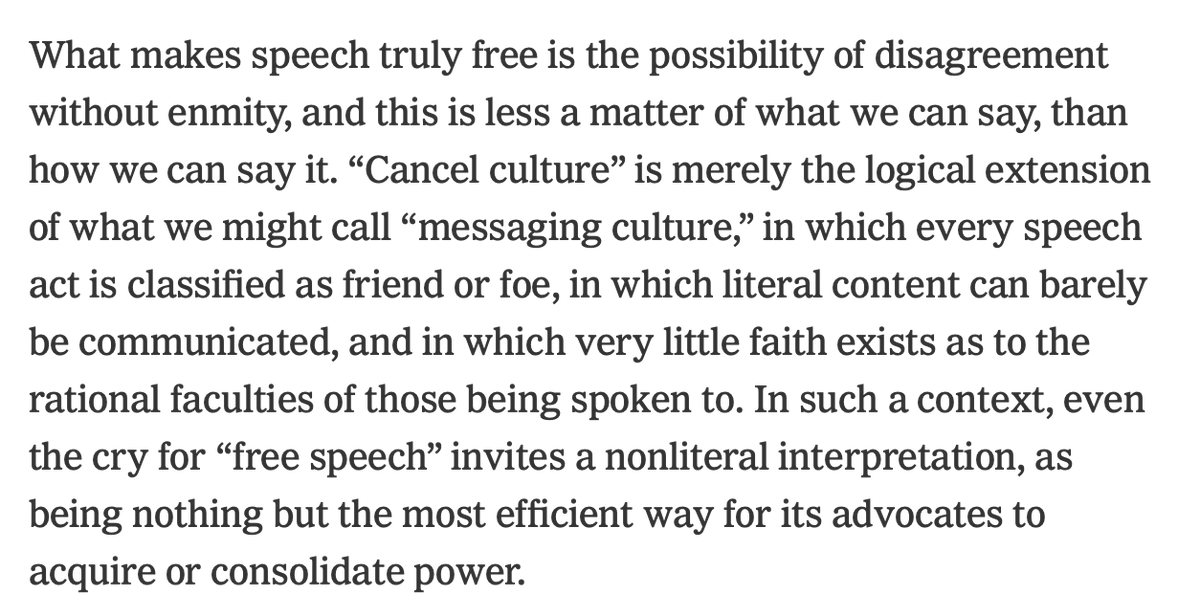this piece is so weird that it ends up wrong in a whole host of ways, some predictable and some surprising https://www.nytimes.com/2020/07/21/opinion/should-we-cancel-aristotle.html
predictable: suggesting the choices are between ignoring racism, etc. and discounting whole thinkers on the base of it and a simple dichotomy between thinkers whose racism, etc. matters vs. doesn't
sort of predictable, sort of surprising: that the key arguments *for* reading Aristotle are to see how he's wrong where "we" are "right" or to identify where he is "right"
v surprising: that Aristotle's ethics is empiricist in this sense. surely saying that his ethics concerned such a world isn't the same as saying as he arrived at his beliefs about slavery simply as a result of that context?
I guess the fundamental way it's wrong is that this is a misread of the situation. in general people are objecting to specific beliefs others are articulating. this seems to be an attempt to gloss anger at the Harper's letter but apply it as a totalizing theory?
it's both true, as a lot of people are saying in response, that virtually no one is trying to "cancel" Aristotle in the first place, but that's sort of beside the point. the piece is trying to glean insight from a response to that *hypothetical* case. it just does that poorly.

 Read on Twitter
Read on Twitter






